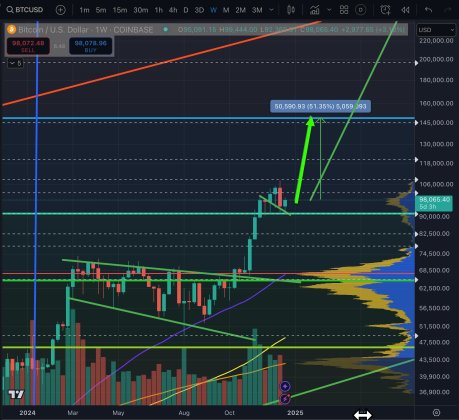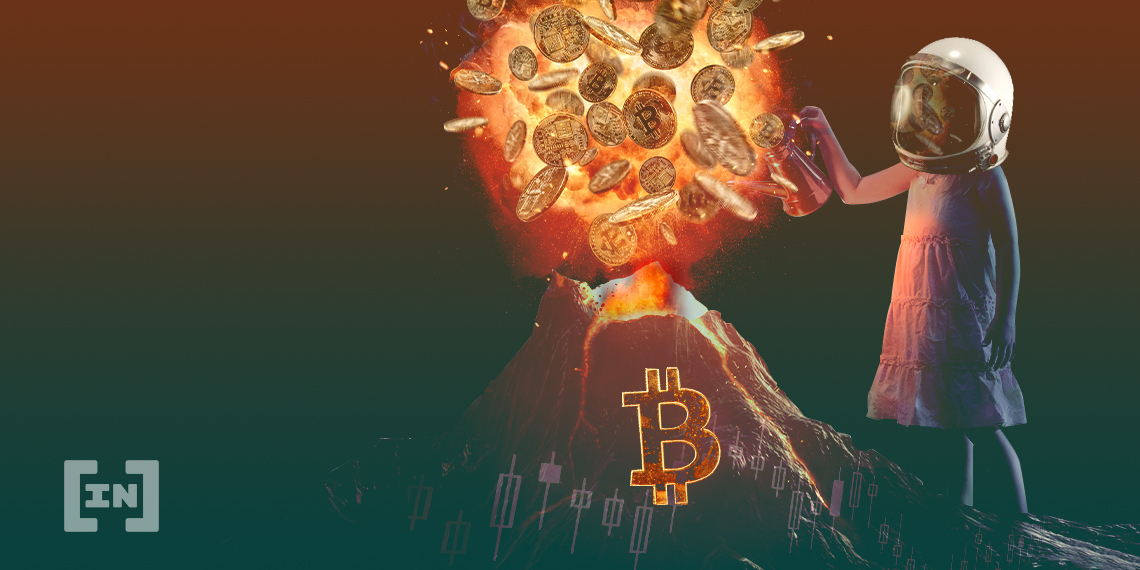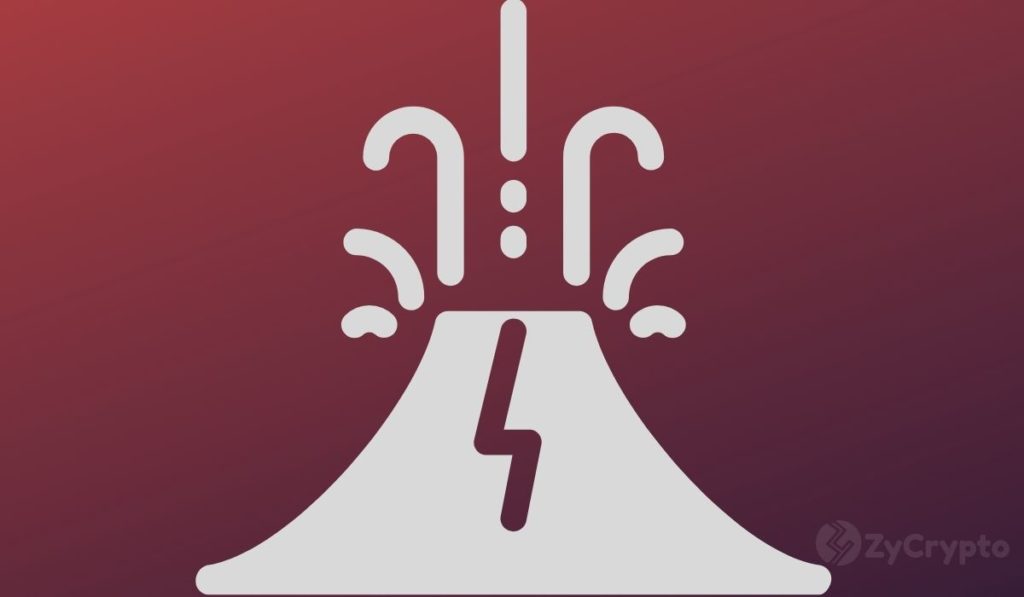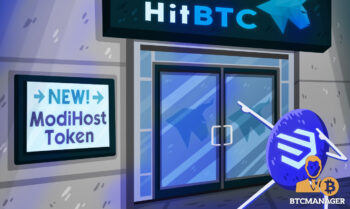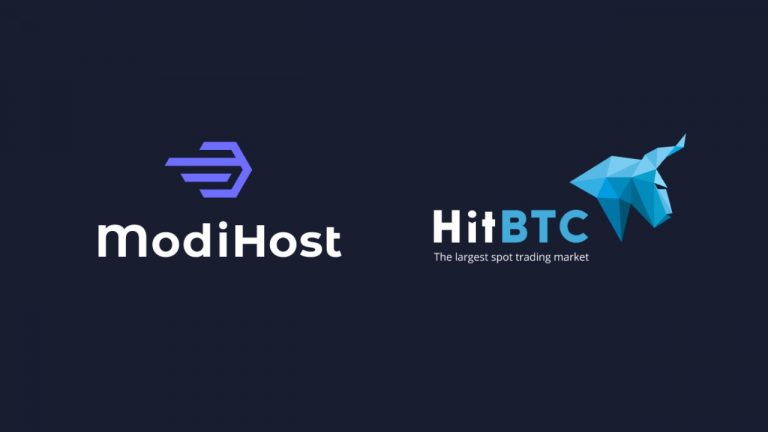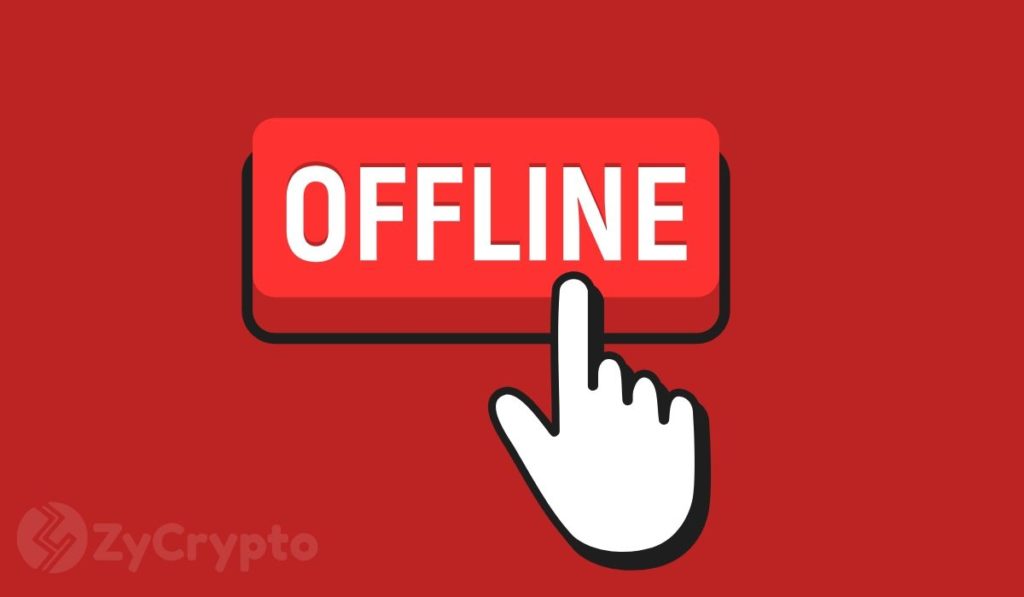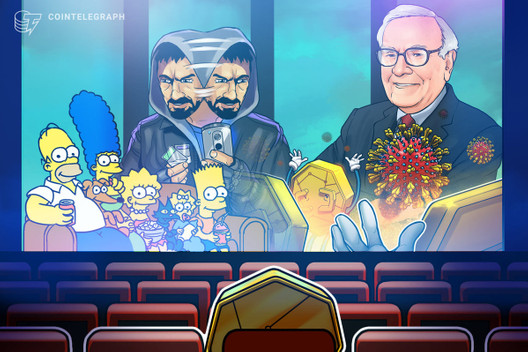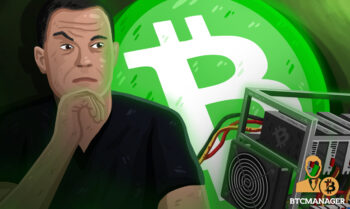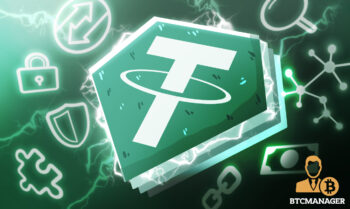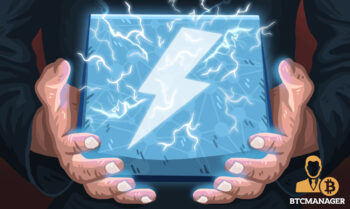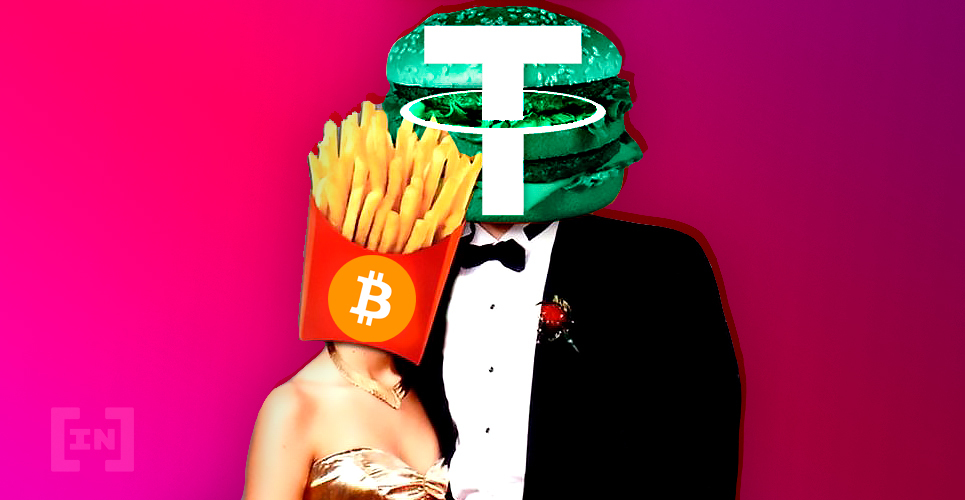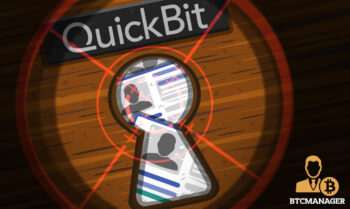2021-12-2 03:12 |
Two Bitcoin experts speak about their experiences building Bitcoin related companies.
Watch This Episode on YouTube
Watch/Listen To This Episode:
BitcoinTVRumbleSpotifyGoogleAppleLibsynOvercastRead The Full Transcript Below:
John Carvalho (00:13): Obviously I know very well your involvement and my involvement too, I guess, with Bitcoin Uncensored. Did you do any other Bitcoin projects? I don't know how closely you were involved with Counterparty or helping with that, but did you do anything else in the Bitcoin world?
Joshua Unseth (00:30): Other than buying Bitcoin, not really, but yeah, I really didn't do any Bitcoin businesses for the reason that I tend to think, if Bitcoin is money, then all businesses eventually are going to be Bitcoin-related or something like it. So I've always thought that you can build general businesses and you can earn Bitcoin.
John Carvalho (00:57): Yeah. A lot of people think that there needs to be a Bitcoin version of every business, and that was how it was going to go down. Joshua Unseth (01:03): Right.
John Carvalho (01:04): You are a businessman though, right?
Joshua Unseth (01:06): Yeah, yeah, yeah. Yeah, absolutely.
John Carvalho (01:07): You have definitely a relevance.
Joshua Unseth (01:11): No, definitely. Yeah. I think it's important to talk about the fact that Bitcoin literally is... If it is money, then all business is Bitcoin business. And I think the idea that a business is a Bitcoin business... I mean, there are businesses absolutely that are related to Bitcoin specifically, but all businesses can be Bitcoin businesses.
John Carvalho (01:33): Do you think there is an actual definition for a Bitcoin business?
Joshua Unseth (01:39): Let's see. I mean, I think businesses related to the onboarding or off-boarding of Bitcoin stuff. Exchanges are obviously very specifically Bitcoin businesses, wallets are clearly Bitcoin businesses, but again, a lot of Bitcoin "businesses" are very difficult to know how we're going to earn in. I think wallets have always struggled with the question of, we have users, but how do we earn money?
John Carvalho (02:05): Yeah. I mean, we've definitely seen some patterns with wallets with how they try to earn money, and definitely some repeat mistakes that they only really get away with because of bull markets.
Joshua Unseth (02:14): Right. Which is really strange because wallets, they find it very difficult. I mean, no wallets take an output, for example, when you're sending Bitcoin, which makes sense, but it does make it difficult to have a wallet as a Bitcoin business purely. You're not making money. And that's the case if we look at a lot of Bitcoin businesses is that they really don't have a way to monetize. And I think that that's okay, but generally, in business, you build things in service of the business. So you might build a wallet because you need your users to have it. Bitcoin ATMs might build a wallet. I know of some that have. But other than that, Bitcoin businesses, for the sake of business, it can be very difficult to earn money, which I think you know very well, right? I think Exotica was a Bitcoin business.
John Carvalho (03:09): Yeah. I think there are two different kinds of hard-to-earn money in Bitcoin. There's the kind that, like with Exotica, just hard to bootstrap and hard to get users, et cetera, real users, just general hardness of making money. But there's also the hardness of finding a way to monetize that actually works or even makes sense for a lot of Bitcoin projects as well. And I guess that's maybe a better term for them is a Bitcoin project rather than a Bitcoin business.
Joshua Unseth (03:36): Right. Right. Yeah. And that was a good [inaudible 00:03:38]. I never really wanted us to make any money in it because I thought it compromised us, but also the way in which most "blockchain" businesses, I guess, make money, is they often advertise scams. That's how Coinbase is making money.
John Carvalho (03:53): I think this is a good moment to talk about specific Bitcoin businesses, and not to talk shit about them, but basically to actually assess how they have tried to handle this problem of monetization, and whether it's actually legitimate or likely. For example, a good one to start with is probably Blockstream. From what I can tell, they found ways to make money through mining and by positioning with finance products, and then they're using that seemingly to maybe bootstrap their more risky products, like liquid and things like this.
Joshua Unseth (04:28): I think that there's a lot of problems with regard to business and developing a user base, particularly businesses that need a large user base to make money. So for example, a wallet business attracting users to your specific wallet, and there's just a lot of competition. So if you go look for Bitcoin wallets, there's all sorts of them. And there's the ones that have been around for a very long time, like, what is it, Airbitz...
--TIMESTAMPS OFF BY 5 MINUTES BELOW--
Joshua Unseth (00:00:00): For example, a wallet business attracting users to your specific wallet. I mean, there's just a lot of competition, so if you go look for Bitcoin wallets, there's all sorts of them and there's the ones that have been around for a very long time, like what's that, Airbitz or whatever it's called, Paul Puey's wallet and there's the Coinbase wallet and all sorts of wallets, right? And I think that it's very difficult to build a business that requires a large user base and I think that fundamentally, what happens in a business like Blockstream is that you have a large number of competent people. I think that, from what I've heard, Blockstream is not the best managed company. I think that Adam is not necessarily a great manager of a business, as he CEO now, I think. Austin Hill, I think, was before.
Joshua Unseth (00:00:54): But what they've done is the result of the competence is that they're able to kind of go in there, look at what Bitcoin can do, and talk to people and build things that address an actual market. And in that way, they can be kind of first to market and the most trusted source for a lot of that stuff. So, they can actually make money without having to attract large numbers of users and they don't have to really ask that. They don't have the trouble of starting from zero, if you will. And they can kind of continually innovate in that way. And the other thing is that a lot of them are they're longtime Bitcoin holders, so they probably don't necessarily even need the job. They're doing it for the passion.
Joshua Unseth (00:01:38): And Blockstream was very unclear when they started what they were going to do. I think that they've done a lot of cool things. They've been able to, as a result of their competency, build a lot of business models that other companies are already building. So for example, I think now they're offering mining. You can buy a mining rig from them and they can host it, and I'm sure they don't actually, they probably outsourced a lot of this. They're probably like a layer for somebody else. I don't know for sure, but it seems to me that that's a business that I would trust them with, right? I would trust a bunch of these blocks from guys to do what I think we kind of would have previously called a Cloud mining, on my behalf, because I know that their reputation is very different than other companies that have previously done this.
Joshua Unseth (00:02:18): So, that's the result of taking people in that have large amounts of competency. And it's very different than a lot of these wallets, which are people who are just kind of building wallets because they know we need them and they think that they're just going to get a lot of users. Kind of "if you build it, they will come" kind of mentality.
John Carvalho (00:02:35): They're a good example because I think that they're a good role model in general for Bitcoin businesses and Bitcoin entrepreneurs to look at.
Joshua Unseth (00:02:44): Yeah. I think it's true, but I don't know how many companies can be Blockstream, right? Blockstream, Bitcoin has the most competent core developers, I believe, of any of these projects in the space. And I think Blockstream kind of has a monopoly on them in terms of these programmers willing to work for them. And then you have, people that are going off and sort of developing their own stuff who are also very competent. A good example is the Strike wallet. I don't know if you've used that, Lightning.
John Carvalho (00:03:14): Yeah. Well, I don't think that-
Joshua Unseth (00:03:15): That's still by Jack Mallers.
John Carvalho (00:03:17): Yeah. Most people in people in Bitcoin will be familiar with a Strike. I think that they're doing really well. I think they're showing the kind of adding Bitcoin to finance with a good user experience direction.
Joshua Unseth (00:03:32): Well, they're also doing a thing I think that we dreamed about long ago, which is that you can use Strike and like it's Venmo and people don't even know that they're using Strike or that they're using Bitcoin necessarily, unless they're sending that money to like a Lightning wallet or something like that. And I think that's pretty amazing, because we've talked about that for a long time, but we've never really seen it put in practice.
John Carvalho (00:03:54): Yeah, I think Strike is cool. I think it's definitely a necessary user experience kind of use case that needs to be solved or I guess they are solving it, but that needs to be addressed. And then Blockstream is like I wanted to address your comment as far as there's no room for more than one Blockstream. I don't think that there would ever be actual clone of Blockstream. It's actually a fairly diverse company as far as what they do like having core developers, working on the protocol, also making mining products and in layers, and all these different things they work on. But I do think that as far as me referring to them as a role model, I just mean just like navigating being a business in this industry. They've diversified. They found some things that worked and made money. They stuck to some things that they care about the most, this kind of thing.
John Carvalho (00:04:48): But I also wanted to segue to Lightning Labs, because I think anybody would define them as a Bitcoin business. They're not a nonprofit, but they do almost solely, as far as I know, work on open source software for a protocol. And so yeah, what do you think about that?
Joshua Unseth (00:05:06): I guess that is very much... yeah, they're much-
John Carvalho (00:05:07): How are they going to make money?
Joshua Unseth (00:05:07): They very much is the Blockstream model that you mentioned, that's true. And I don't know, I mean, there, maybe they'll provide liquidity on Lightning. I think there's a lot of really interesting things that we're going to see with Lightning. I mean, Lightning, Lightning, have you played with it at all?
John Carvalho (00:05:23): Of course, yeah. Well, and they literally do provide liquidity on Lightning through their latest product, it's called Pool. It's sort of like a-
Joshua Unseth (00:05:30): There you go.
John Carvalho (00:05:31): I don't know if I want to call it decentralized way of selling, it's a decentralized way of pooling people into a central area to sell channels. And so that they're working on. I don't know how successful it's been as far as usage and uptake. But that is one of their latest products?
Joshua Unseth (00:05:47): Well, I think Lightning is slow on the uptake right now. And so, I'm sure that a lot of those revenue sources for them are kind of things that they foresee as being profit centers, but they're just stuff that isn't. Lightning is just not ready yet. It's not ready even slightly. They're getting closer.
John Carvalho (00:06:07): What do you think is not ready about Lightning?
Joshua Unseth (00:06:08): Well, there's just, there's a lot of problems that Lightning hasn't quite addressed yet with regard to, I don't know, I think the penalty of maybe of broadcasting in an old state. For example, one of the people gets to take all the money. I think that that's, a lot of that stuff is going to have to be sussed out and changed and modified, and we're going to have to find out how to do this. But, I mean, the fear of running a node is, I think that anyone who's running a Lightning node if they have substantial money on it should be suffering from a sort of node anxiety. You don't want your node to go down and to come back online incorrectly.
Joshua Unseth (00:06:51): And I think that it's clearly a beta product. There's just a lot of, there's a lot of small issues with it. None of them are deal breakers, but they need to be fleshed out and so anything that you're building on Lightning right now, I think is very much subject to its sort of current nascent state. It's not ready, right? It's not ready for primetime. And I'm amazed at the uptake that it has for a product that's essentially in beta.
John Carvalho (00:07:21): I see a little bit differently. You're saying it's not ready, but I think you kind of mean it maybe in two ways or at least more than one way. It's not ready as far as at the protocol level where you think the actual design might not be ready, like you mentioned the penalty thing. And that's a pretty fundamental aspect of the design and it's not going to change until we get, I think, the CTV soft fork, which would probably won't be anytime soon.
Joshua Unseth (00:07:45): I was talking to someone today about one of the issues where if you close, if you open a channel without enough of a fee, you can have real problems trying to close that channel later on. And I'm not exactly like I'm literally just getting my Lightning node up and running right now to start playing with it. But there are definite issues with Lightning on all sorts of fronts. But sorry, I'll let you continue. But I just think that the problems that we're seeing, I'm excited to watch and get worked out, but yeah, they're not going to be fixed until we have substantial users, actually, working out. But a lot of these do not affect the users necessarily, they affect the node operators, which is a very different...
John Carvalho (00:08:30): Stop.
Joshua Unseth (00:08:30): ... yeah, instead of people-
John Carvalho (00:08:31): Now, I'm going to take that as a segue, because I don't disagree with you, but I think of it a little bit differently. And maybe you can keep this in mind as you continue your Lightning journey. Because what I've come to learn after digging into it is I actually think we're making the same mistake with Lightning that we made with Bitcoin, where we were like, "Oh, it does this and it does that. And it's going to fix this, and it's going to kill shit coins." And we just think it has all these magic properties, because it is cool and we were kind of projecting what all these things might be possible, mixed with our ignorance of what it is actually possible.
John Carvalho (00:09:08): And I think that what I've learned is that, you mentioned node operators, I think that Lightning is not for users. I think that Bitcoin is for biz, I mean, Lightning is for businesses. And I mean, obviously that means it's for end users, too, because they connect to the businesses. But I think the people running Lightning and caring about it and even knowing it exists, need to be the businesses, not the users. And like you mentioned Strike, and they're a good example, but I kind of mean like the flip side of Strike where Strike is hiding, masking literally everything from you and you just pay and pay and that should be the way it is. But we also have situations where you need to get, you need to cue the user to be able to do things on Lightning that are more complicated than that. And those need to be addressed in user experiences that aren't currently, so it's more of an app level not ready for Lightning, in my opinion.
John Carvalho (00:09:57): So, I think that on a protocol level, a lot of it is pretty much ready. Yeah, there's some things that are bugs and some things that could be optimized, but you can hook in a wallet to an exchange to a user and you can make a whole little network and pay everybody and it all works just fine. So, that the user experience aspect is at the app level and I don't know that Lightning Labs is even going to attempt to solve that or any of it or Blockstream either. Well, Blockstream does have some apps, but none of them have Lightning in them. Joshua Unseth (00:10:30): It's true.
John Carvalho (00:10:31): So I think it's something that's at the network level and it will be solved and treated more like having cell phone minutes or there'll be some kind of user experience for handling it. And I think you'll find that it's not, I don't know that users are meant to at least know that they're running a Lightning node. In mobile apps, you can get Neutrino in there and so, you can have this lightweight node that works. But even that it's tricky to install apps and not widely supported, et cetera. I don't know. I'm ranting a little bit, but yeah. I don't disagree with you.
John Carvalho (00:11:05): I just think that I guess the side of the question that we didn't talk about so much with Lightning Labs is I do think they have a challenge to try to figure out how to make money. And yeah, they have this Pool product, but it is a decentralized product, and anybody could run it and run their own Pool. And so though, just everything they make has their own competition built right in as well.
Joshua Unseth (00:11:29): I'm excited to see where Lightning Labs goes and a number of the other Lightning protocol type or these other Lightning apps that are being built? I'm amazed at the progress of Lightning. I think that a lot of people think it's slow, I don't think it is. I think it's been amazing. I hear people critiquing out the uptake of it, but I know that people who are running Lightning nodes are making more and more money sitting in between transactions every year. And I think, I mean, it's just a really neat little... it's an amazing addition to Bitcoin.
Joshua Unseth (00:12:01): I think what I realized about the limited block space of Bitcoin is that it sort of forced a going to the moon moment in the space, where we had to figure out ways around these perceived problems, like the fact that not enough people can interact on main chain, as people were saying. How do you solve that problem? Well, there's this really amazing function in Bitcoin that allows us to basically open these channels and net. And I think that was a really amazing sort of proposal and the implementation, you're correct, it is a business protocol of sorts. The implementation is functional and simple, and really incredible.
John Carvalho (00:12:48): On the business side, also what I mean is like the quality is basically that I think Lightning brings to Bitcoin is it obviously allows you to do instant transacting, which is, I mean, relatively instant, which is pretty new to Bitcoin without zero cough. And then it allows you to have high frequency, so you don't have to pay fees if you know you're going to do a lot of payments. And high frequency payments are typically only happening in business, right?
John Carvalho (00:13:15): And then the last thing it does is it adds centralization to Bitcoin. It lets you have centralization safely, because the user holds the keys and the worst thing that can happen is that the channel closes, and they have to wait for the settlement. And so, basically, there's only the nuisance factor. And so I think those are the three qualities it brings like centralization, high frequency and instant. These are very, very retail friendly, kind of business friendly qualities, you know?
Joshua Unseth (00:13:42): Yeah. Well, the instant payments, I mean, to me, I've always said this. People have been building these coins to address Bitcoin's 10-minute block time, which I think is hilarious in it of itself, but no one seems to really realize that the only thing that really matters, the only speeds that matters is zero seconds, right? If you can't get payments down to zero then 10 minutes is as good as two minutes. If you have credit card payments for a business-
John Carvalho (00:14:11): I definitely agree with this.
Joshua Unseth (00:14:12): Yeah, if you have credit card payments for business, you're getting settlement, you're netting once every 24 hours or once every... maybe you're getting the payments three days after they've been put into your Strike account or something like that. And I think that that is that's generally fine, businesses operate on that, there's a lot of ways you can mitigate it if you need the money right now. You can get high interest factored loans or something like that. But Lightning brings these payments speeds, essentially the speed of cash, right? The sort of zero time transaction, which is amazing, and it's really cool that you can do that on Bitcoin because we didn't think you could a few years ago. We thought that you needed 1, 2, 3, 4 or 5 confirmations and was Lightning, you can essentially, just sit there and take money at the speed of lightning. It's very, very fast.
John Carvalho (00:15:08): Yeah, I think it was a really good point with pointing out that there's no difference between two minutes and 10 minutes. This is one thing that actually frustrates me about liquid is that I think it's two-minute block times or something. It's just like, "Why isn't it shorter?" If they had the chance to design it themselves, why isn't it shorter? And my guess is they're going to tell me it's for technical reasons, which is just going to be that I'm like, "Okay." Go back to my belief that I don't think that Sidechains are a real thing or a way to scale Bitcoin.
Joshua Unseth (00:15:35): Well, I think that Sidechains are a way to experiment on Bitcoin. I do think that Sidechains could be a way to scale Bitcoin, right? You could make them one second or something like that or, but essentially, Sidechains, I think, are mostly for experimentation. Paul Sztorc talks all about Sidechains being a way to kill shitcoins, but I think that they're really, I don't think that application really exists, because the true application of shitcoins is for founders to get rich by printing their own money. And if you suddenly tie these things to Bitcoin, there's no actual reason to have a shitcoin.
John Carvalho (00:16:10): I totally agree.
Joshua Unseth (00:16:10): And that's [crosstalk 00:16:12]. It's just, I've talked to him about this before. If you have Darkcoin or something like that running on Bitcoin, that's cute and all, but unless, that functionality is actually added to the main Bitcoin protocol, it doesn't really matter. But the reason that he started Darkcoin wasn't to have a $50,000 Darkcoin, it was to start at zero and get a bunch of people on and to buy it and to make money out of this thing. It doesn't serve an application, so there would be no reason it would be on the Sidechain.
John Carvalho (00:16:49): Yeah. What I think Paul and some people sometimes don't understand is that you can't solve the "problem" "of shitcoins" by adding something to Bitcoin, or doing something on Bitcoin, because the whole point of shitcoins is to be not Bitcoins. And so like Drivechain, et cetera, you can't fix those Allcoin problem. The Allcoin problem is that people want an alternative, and they want to speculate on an alternative and they want narratives to be the reason that drives that speculation.
Joshua Unseth (00:17:21): But I do think there's some interesting stuff like Rootstock bringing the EDM to Bitcoin. I mean like, "Go ahead." I think that will be an interesting thing. It does kind of remove a lot of the claims about like Ethereum, right?
John Carvalho (00:17:33): Yeah. I will fully disclaim ignorance on Rootstock at the moment. I remember, we probably both researched it at some point, back in 2016 or 2015, or whatever, but I haven't done it lately. But I really feel like I remember the last bull market, they resurfaced and they did an ICO and now, they have two tokens or something. And now this bull market, I really feel like it's just the bull market that revived them. And I don't really think there's actually real hype or interest there for what they're doing.
Joshua Unseth (00:18:03): Yeah, I mean, it could very well be. But I'd be curious to look at it, because I don't know if they've actually got the EDM functioning out of it or not or what the state of that project is. But I do know that it seems to be back. And yeah, but I'd be very curious. If we do have a widely used EDM on Bitcoin or one that is easily accessible, it kills a lot of propositions that Ethereum makes. I don't think it's necessarily any more useful on Bitcoin. But it is an interesting prospect to be able to point to it and say to people, "You can do that on Ethereum, but you can do it just as easily in Bitcoin with exactly the same language."
John Carvalho (00:18:42): I have a feeling that a lot of the actual interesting things like the closest to being realistically interesting things that are happening on shitcoins and supposedly not on Bitcoin, I actually think they're going to be like discovered as decentralized web tech first. In other words, it will just be a matter of integrating Bitcoin in this way with peers intentionally and you'll be able to do the cool shitcoin stuff. It's not best example, but we have DLCs, for example, and these are just a different way of doing smart contracts, but we don't have this on chain, so there are different challenges for kind of coordinating using this.
Joshua Unseth (00:19:22): This is the Brave browser problem, I would say, right? Brave browser would have been a very cool product where you were tipping people in Bitcoin all over the internet.
John Carvalho (00:19:35): Yeah.
Joshua Unseth (00:19:36): Instead, they released their own token. But I agree, there are neat applications out there that people have built with shitcoins that they could easily throw Bitcoin on, but they don't. And I actually think that represents a pretty good opportunity for Bitcoiners. If the Brave browser provides value people think it does, then I think particularly as Lightning gets underway, I think it's a little hard to give people these small tips when you have to pay 40 cents or 60 cents to have it on to get anything through unchained. And right now, even that is a suspect as to whether a transaction will be mined at that rate.
John Carvalho (00:20:19): And that will eventually come bleak into Lightning, too, because Lightning transactions will just be cheaper than Bitcoin transactions, but not necessarily cheap.
Joshua Unseth (00:20:27): Yeah, I don't think it will be free by any means, but I do think that they'll be cheap enough that you could actually send a 30 cent or 40 cent tip to somebody and that would be great. I do think that goes to a lot of the applications I hear people like Elizabeth Stark talk about like streaming payments for workers are absolutely in name very stupid. And I don't think that those applicant, like I don't know. I tend to be very critical of libertarians. I tend to think that they have some of the dumbest ideas. And that's one of them. Workers getting paid on a two-week time span or every second that they're working, it's really not that different. I don't care what anybody tells you, it's just not.
John Carvalho (00:21:13): Yeah, I mean, you would miss it. To paid in streaming, you need your work to basically be super, super important and dangerous, I'm guessing. That's the only reason you would want to be paid immediately, right? [crosstalk 00:21:25].
Joshua Unseth (00:21:25): Maybe, but even then, even if it was and you're sick, we have direct deposit. So, too, if you die on Thursday, because you were doing something, cleaning windows in a skyscraper, you're still going to get money in your bank account to the date that you worked, [crosstalk 00:21:41] on Friday, a week from the day that you died.
John Carvalho (00:21:44): I think that streaming payments is going to only be interesting wherever streaming data is interesting, so. Joshua Unseth (00:21:49): That's what I think, too.
John Carvalho (00:21:50): Yeah, if you're streaming...
Joshua Unseth (00:21:52): But even-
John Carvalho (00:21:52): ... if you need a live feed to something, then it's okay to pay for it in a streaming. But ultimately, everything in reality is a sample rate. You can only witness something in a moment whether it's digitally, as a human eye, or whatever, everything is at a sample rate. So, just talking about how frequent you are doing a sample rate.
Joshua Unseth (00:22:09): Correct. And that's the thing, the frequency. I guess you might call it payment resolution is the resolution of payments. At what point does it become important and do workers need to be paid every two weeks or do they need to be paid every four and a half minutes? A lot of these questions are very stupid. And Lightning doesn't really solve them nor make the stupid questions more interesting. [crosstalk 00:22:35].
John Carvalho (00:22:36): There's also like, "Will I even like that? Do I like? How will it feel to actually be on the clock?
Joshua Unseth (00:22:44): Yeah. And it's a very weird problem. And I think that people are in Bitcoin and in shitcoins, in general, they've always been very obsessed with settlement times, right? So, 10 minutes is too long for a lot of people. Banks take a day or two sometimes to do things. The reason that these settlement times exists is that so you can find mistakes.
Joshua Unseth (00:23:09): A good example if you have employees working, let's say someone forgets to clock out, but you don't want to pay them for those three hours on a streaming payment, right? You want to be able to correct that before payroll goes up. And that's why companies do that. That's they make adjustments before payroll goes out. They need the time and it doesn't, a lot of these problems, I hear people saying Lightning solves are very wrong. There's no reason to solve it like that. Paying for a cup of coffee, on the other hand, you can do that with Lightning. It's kind of cool.
John Carvalho (00:23:43): I guess in the end, the amount of the optimum amount of action is the fewest amount of actions, right?
Joshua Unseth (00:23:49): Yeah,
John Carvalho (00:23:49): So, you always want to try to batch or optimize something if you can, regardless of the format.
Joshua Unseth (00:23:55): Well, and I think it isn't any less efficient because Lightning, right? We, as people as businesses, you want to net. Netting is an important feature and Lightning makes the ability to net a little bit faster, a little bit cheaper. All that's good, but you want to net. You don't want to necessarily be doing things like sending 12 cents every second.
John Carvalho (00:24:19): Yeah, yeah. All right. What do you think about Counterparty, do you still follow that at all?
Joshua Unseth (00:24:26): Yeah. Especially during the NFT boom, Counterparty has been very interesting to me. The NFT stuff is interesting, only insofar as I don't think anybody really knows what they are. And I think in Counterparty because of the rare Pepe stuff people have been thinking about what NFTs are for a very long time. And I think that the NFT has really worked well when the NFT itself is like a database object, right? So like Magic: The Gathering cards may be a really good application for NFTs, but I don't think that it makes a lot of sense, so it's very interesting when applied to a piece of art.
John Carvalho (00:25:07): Yeah, I agree.
Joshua Unseth (00:25:08): As like a digital receipt. I find it to be very dumb. And it's sort of arts DRM, if you will. What are they going to do? [crosstalk 00:25:18].
John Carvalho (00:25:18): Well, it's not even bad as our DRM, even though it's not, just because something is not easy to enforce doesn't make it useless.
Joshua Unseth (00:25:26): Correct. John Carvalho (00:25:26): But most of them aren't even that. NFTs are usually just metadata pointing to a link somewhere.
Joshua Unseth (00:25:35): That's what I'm saying though. If you bought the Beeple, the one that was at Christie's for what $60 million? And you're like, "I own this Beeple." "How do I know you own it?" "Well, I have the digital receipt." So, what do you do with this Beeple? I don't know, you put it on display at your house, somehow. You put it on your TV. Well, if I have access to that file, I too can put it on my TV. I can put it on there in exactly same way. It doesn't-
John Carvalho (00:26:01): Well, the question would be, do I actually own any rights? Do I get to own the painting and so, I can license it to let somebody put it on their book cover, for example?
Joshua Unseth (00:26:09): You probably, well, no because you don't even own the copyright, right? The artist retains copyright.
John Carvalho (00:26:15): [crosstalk 00:26:15].
Joshua Unseth (00:26:16): So, what you do is I don't know. I think the only real thing it gives you is the conference of the idea that you own it. So, if a museum wanted to display, they're going to have to ask you first...
John Carvalho (00:26:28): Well-
Joshua Unseth (00:26:29): ... in some weird formality and you could say, "Yes, I'll lend it to you." And then I don't know, you have to take it off of your TV while they have it also. But if I download the file and I put it on my TV, my having it on my TV doesn't diminish your ownership at all. And we have equally valid copies of exactly the same thing. So, you can own it, you might be the one who holds the receipt, but I have exactly the same thing in my house and I can get exactly the same experience, which is very different than owning the Mona Lisa or owning a counterfeit of Mona Lisa.
John Carvalho (00:26:59): Yeah. So, and this is something I've been thinking about recently, and I just said it in a podcast a few days ago. But I think what NFTs are what people are not really fully understanding that they need to be is metadata objects. They basically are, you need a way for creating and enforcing a network of people that define this key as something else. Right? Because you can't. There's something else. It isn't in the key. It simply isn't. And so, the key is just like a credential and actually, no, the NFT is actually a credential. And so like the people, your key is just your ability to prove that credential.
John Carvalho (00:27:39): And all NFT is trying to do is take that credential and make it into a bearer instrument because for some reason giving credentials requires bearer instruments. I don't know. But the truth is, they could do the same thing just for the art use case, even if it included rights, they could do the same thing just by using any key pair signing a message to another key pair and that's it.
Joshua Unseth (00:28:01): Right? Or even more of that, like if I were a Christie's and I saw this, I'd be like, "What we could do is we could build a database of provenance, where if you want to sell digital works then you can bind the digital work and we will record in the Christie's database, that this person owns this work. And then when that person wants to sell the work, they can come to Christie's and they can be the only ones to do it. So, if people are buying this digital art and owning digital art is an actual thing, which I can at least acknowledge that there's some validity to that, then there should be a centralized database that has all the owners of these things in some way. You don't necessarily have to use your name, you could literally just use PGP or something like that to prove that you're the person who has the right to sell it, but it doesn't need to be on a Blockchain. That doesn't actually confer any rights or anything interesting.
John Carvalho (00:28:53): Yeah. Agree. Agree.
Joshua Unseth (00:28:59): I don't know. I mean, like again, as database objects, I think it's interesting enough. Again, if you're playing a card game online or something like that, but generally, these NFTs really do not confer anything to the end user. It's kind of the same problem as the ICOs from the last boom. People were buying them as if they were equity, but they weren't equity, right? They were-
John Carvalho (00:29:20): Yeah, I call them sentimental equity, basically.
Joshua Unseth (00:29:23): Yeah, people were treating them like equity, but they weren't equity and they were stated as not equity in all the documents and white papers. And I always thought that was very interesting that people still treated them as equity, and still bought them as if they were equity.
John Carvalho (00:29:37): And they did the same thing with NFTs?
Joshua Unseth (00:29:39): Yes. And that's, what's really interesting about the space, I found that there's a lot of things about Blockchain and Bitcoin that are very interesting to me. And one of those things is that we tend to smell as humans a hole in the universe. We know that there's something there. So, NFTs are an example of this. We know that there are some use, that there could be some use cases for this NFT stuff, right? I'm giving a good example, I think, the idea of trading cards. Perfectly good use case. The reason it's a good use case is because digital trading cards are essentially bearer instruments and Blockchains are for bearer instruments, digital bearer instruments. And that's, that's perfectly interesting, very interesting thing.
Joshua Unseth (00:30:25): But the idea, this idea before people have figured out what NFTs are for, they've smelled that there is some sort of use case here and they've then extended it to things that isn't useful for such as art, generally. And the fact that people are using it, it doesn't necessarily mean that it is interesting or useful for that purpose. And I find that to be sort of a difficult thing for people to realize that things can pop in value. But essentially, what you're selling in this case is a receipt that can pop in value. It doesn't make the market right.
Joshua Unseth (00:31:02): The market can be very wrong about what it's doing and we see it all the time in Bitcoin, where the market is completely wrong about how this technology ought to be used and yet, people use it that way for a while until it falls out of use because people realize that it's kind of bullshit or in the case of the ICOs, a lot of these companies end up failing. And it's interesting, because now, we have a bull market, and there's no more ICOs. They're pretty much done, at least, conceptually. Maybe it will return in the next bump.
John Carvalho (00:31:34): Yeah. I think it's just a weird phenomenon where when you're new here, you have this weird mix of ignorance and greed that allows you to basically ignore things and gloss over things. The cues are there. You could learn them if you dug in and actually paid attention a little bit and actually know what's going on. But you would more prefer to ignore them, so you can believe this, that you have this opportunity to make money and it will just kind of stay in that state for as long, until they stop making money.
Joshua Unseth (00:32:05): Right, and then they move on to the next thing. And I'm wondering what's going to happen if like Christie's or Sotheby's if they're jumping into these things, what are they going to think? Because I've talked to a couple of people and they're always saying that they're researching this very exciting new art stuff. And I'm trying to figure out what they're going to discover. Because when you take, it's sort of an emperor has no clothes situation. And are we just going to pretend for the next 10 years that NFTs are things in the way that we're saying are things, or we can ever discover that they're not? Does that happen sometimes?
John Carvalho (00:32:41): I think it will depend on how well it actually sticks as a narrative for raising money through the bear market. If I can keep raising money for my shitcoin company by saying I'm building an NFT platform or revolutionizing NFTs, then it will be around for the next bull market. But if I can't do that, then it won't because it's just going to be like a retired narrative
Joshua Unseth (00:33:01): Meanwhile, I see companies like Masterworks, which allow you to buy fractional shares of our pieces and they do it in a full-fledged database. No shitcoin, nothing.
John Carvalho (00:33:12): Yeah, totally, incidentally, I actually had a call. I don't know why they asked me or why they wanted my opinion, but I had somebody like a gallery like Christie's. I had recently had a meeting call with them, because they wanted to get my thoughts on NFTs and how I thought they should do it and such. And I'll tell you what the result is, I'm pretty sure what they're doing is building an NFT platform for Ethereum. And so, I even had the chance, so I literally had the chance to tell a gallery, you can just use any key pair and sign a message to somebody else's key and keep it that. The example you just gave, I literally gave it to them. I said, "Look, if you wanted to do the total Chad kind of aristocratic kind of move.
John Carvalho (00:33:58): And actually do it like how I think Christie's should do it, it would be like I have this formal white glove thing where you're having high security for the keys and how you generated the keys. And you would prove that, "Now, this is now Christie's key." And you would sign a message to the buyer and you would give him a printed copy of what was encoded in the message and you would frame it. Everybody would see it, make news and there'll be nothing to do with Blockchain.
Joshua Unseth (00:34:24): They could absolutely build any of these platforms and actually make some money. There's a giant hole in the market. And it's funny to me that that solution has been around for, I don't know, 50 years. So far about 50, but probably 30, 40 years, essentially since PGP. I don't know when PGP was developed, but you could have done something this that long ago. And yet they're pretending like, well, they're not pretending. They truly believe that this is a new innovation that has recently been come up with and it's not. It's just something that is the word Blockchain is involved, so they think it couldn't have been developed the other way.
John Carvalho (00:35:04): The same thing happens when people get into shitcoins, and they hear about all the narratives. They don't actually realize that a lot of those narratives are narratives from the past two decades from people trying to build the internet. And it was just like things that people have always wanted people to do in the internet, but they don't for some reason or they've never been designed well or finished. And now, shitcoins are going to claim to finish them and that's it.
Joshua Unseth (00:35:26): Well, this is the thing I've always said about the blockchain stuff is if you listen to pitches of a Blockchain, what you end up with is a realization that oftentimes the word Blockchain is substituted for this idea of human coordination. So if you have Blockchain, then you don't need human coordination, right? And Blockchain doesn't really solve that problem. Blockchain doesn't solve the problem of human coordination. You still need people to do things, so the key pair signing that you're discussing, the reason it hasn't been developed is because someone would have to develop it.
Joshua Unseth (00:35:59): And now that we have Blockchain, the fact that you could develop it doesn't go away. But now they think it has essentially been developed because blockchain exists. And, blockchain doesn't even really facilitate it or make it easier. It's just that someone else has done this and made it easy for them to do. And I feel like given that, given that fact, there actually would have been possibly a way that Christie's could have developed this in the '90s and made a ton of money in the meantime selling digital artwork. And I wonder if that's true. I wonder what would have happened if they had done that back then.
John Carvalho (00:36:37): I bet we could find this in the wild if we actually looked that it already [crosstalk 00:36:40].
Joshua Unseth (00:36:40): I bet you it does exist. Yeah. It's interesting, isn't it? But again, the provenance thing in that sort of environment is a little bit difficult, right? What if I want to do a private sale of a piece of art? Now, in a world where you do the key pair stuff, you could transfer it by going in signing and giving it to this person. But if you forget to do that, does that person now not own the art? Do they not own the ability to sell that in auction?
John Carvalho (00:37:14): Well, if the person loses the proof, do they not own the art?
Joshua Unseth (00:37:17): Yeah, and this has been my question with Ethereum like if you don't transfer the rights, let's say have a physical piece, people say you could tie one of these receipts to a physical piece. If you have a physical piece, and you don't sign off that you sold it, does that person not own it? Do you own it still? Because it just seems to me that the mess of provenance isn't the fact that paintings move, art moves all the time, and it's going to move-
John Carvalho (00:37:40): Well, because they're really talking about trust and whether or not and basically substitute witnesses, that's all.
Joshua Unseth (00:37:45): And it's going to move, regardless of the token.
John Carvalho (00:37:48): All right, let's move on. I think we should talk about maybe Bitcoin Uncensored and more specifically, Bitcoin maximalism a little bit?
Joshua Unseth (00:37:58): Sure.
John Carvalho (00:37:59): And let's see if we can try to put it through the lens of business. I don't really know what that means or what that would look like, but so much as like, I don't know, maybe. Do you think Bitcoin maximalism is good for business?
Joshua Unseth (00:38:11): Bitcoin Max, yeah, I do. And I would say I would say it's good for business because it moves you towards a consistency of direction, but also, it means that as a business operator, you don't have to kind of be up on the latest trends, if you will. You can focus on building your business. I think that it's actually really dangerous for businesses to become obsessed with cryptocurrency. And I think we've seen this a lot where businesses come into the space and the first thing they do is spend a lot of time trying to research exactly what they should do, and what they ultimately end up on is Ethereum or Dash or something else. And they'll try that for a while. And then eventually they make their way to something else, and then something else and something else, then Bitcoin.
Joshua Unseth (00:39:09): And I think that that's a giant waste for businesses to spend all of the time and money to develop all of these different types of platforms or on all of it. Because what businesses really are in the business of making money. So if you know not a Bitcoin business, necessarily, let's say you're building a business selling food, if you're trying to focus on any crypto at all, you're going to waste a lot of time trying to just market your business and build your business. That said, I would say that a lot of this stuff, I mean, no one spends their coins right now anyways. I tend to believe, I tend to be a believer in the idea that if you're a business, you probably shouldn't focus on this space at all if you're not directly in Bitcoin for that exchange.
Joshua Unseth (00:39:52): Businesses should be in the business of making money and then if the owners when they get their dividends want to invest in Bitcoin, more power to them. And I think that's the best way for businesses to focus on this space is to have a founder maybe that really likes Bitcoin and to watch it closely, and then to just not really participate in the business aspects of Bitcoin. Bitcoin as money eventually will make it into your business if it works as money.
John Carvalho (00:40:19): Yeah, I would agree with most of that. I would say that, there is a little bit of a flipside where probably and I only would really appreciate this because I worked at [inaudible 00:40:27]. But probably a business should just be currency agnostic for the most part and just accept whatever form of payment they can actually parse through their own business system, which may include adding payment processors.
Joshua Unseth (00:40:41): Well, if a payment processor takes Bitcoin cash or Ethereum, or Cardano, or any of these others, if you're a business and you getting the cash in your bank account is fiat, you're going to be ambivalent as to what people is paying.
John Carvalho (00:40:54): Yeah, because you can always buy Bitcoin with whatever they paid you in any way.
Joshua Unseth (00:40:56): Yeah, absolutely.
John Carvalho (00:40:57): Which one.
Joshua Unseth (00:40:59): And that's what I'm saying is what you want as a business really is just, you want to not have to think about the payment process at all. You want to receive fiat, you want that to go into your bank account, and then you want to be able to extract that as dividends or as payroll or whatever. So, it's really dumb for businesses, unless they're Bitcoin businesses to really focus on that. And Gen-X or whatever the company that does a credit card processing, if they add a way to pay with Bitcoin, that's great. And you as a business, all you have to do is turn it on.
Joshua Unseth (00:41:29): But there's been a lot of studies, particularly with eCommerce, I don't remember which company it was, but many years ago like probably seven or eight, there was a company that added Bitcoin processing to their checkout, and it lowered their checkout percentage, because people had another option to pay. And that's not good. You really want, you want businesses, too. Businesses want as many customers as they can possibly get going through that checkout process and finishing it, and putting in their credit card number or their ACH or whatever it is that they want and they just want the money. So, to add Bitcoin because out of principle or something that, especially if it hurts your business, that's in my opinion, a violation of your fiduciary duty as a business owner.
John Carvalho (00:42:17): But what about the concept of we have hyperbitcoinization, which I kind of, the way I interpret that is basically like circular economy. In which my definition of that or I think the actual definition of that is something of basically about removing as much conversion as possible, reducing the amount of friction, having the least amount of points between nodes, et cetera. Circular economy is about efficiency and removing conversion. And so, if you are somebody that subscribes to hyperbitcoinization or the concept of a circular economy for Bitcoin, you probably want to be part of some kind of movement towards Bitcoin businesses that only use Bitcoin and don't accept all the things, because all the things are an inefficiency.
Joshua Unseth (00:43:10): Yeah, except that businesses, again, are trying to receive fiat, so.
John Carvalho (00:43:16): Well, that's an assumption. I definitely think they're starting to be people that businesses that do want to accumulate Bitcoin.
Joshua Unseth (00:43:22): Yeah. Well, I think it's different when you put it maybe in your Treasury, like some of the MSTR or Tesla talking about it now. Other company is probably going to do it at some point.
John Carvalho (00:43:35): Yeah, I don't think people are using Bitcoin for their overhead. Yeah.
Joshua Unseth (00:43:39): Yeah. I think that most businesses really want fiat for the most part. And if you want to make an ideological statement with your business, I mean, that's the business owner's prerogative, but I do think that businesses really have an obligation just to accept fiat or to get money into fiat and then the business owners themselves or the business employees or whoever, they can do whatever they want with their money. If they want to invest in crypto, they can. If they want to invest in gold, because they're gold bugs, they can. If they want to invest in silver, they can. If they want to put it into equities, they can.
Joshua Unseth (00:44:16): And I think that it's just, it's incumbent on businesses to operate in a normal environment with something very stable. I think it kind of adds a layer of risk to business that isn't necessarily what they should be taking on as businesses. As an individual, I think it's a very different question, but as a business, it's just not. I mean, to me, the risk of a highly volatile asset being added to your businesses.
John Carvalho (00:44:40): I want to nitpick and say I don't know if it adds risk so much as changes the risk profile in a way they may not know how to handle.
Joshua Unseth (00:44:47): Yeah. It definitely adds risk, though, because volatility is risk in the markets. I think there are people that disagree with me on that, but that tends to be the sort of accepted definition of volatility is risk.
John Carvalho (00:44:57): Well, I think this goes into the sample rate thing like I think everything has the risk and it's just like how big and how often it will happen, particularly with money. What will happen with your fiat is suddenly in 2020, they'll print half the money supply, like that's a risk.
Joshua Unseth (00:45:14): Yeah, but businesses are generally not, they're not there to, like I don't think that businesses should be accepting big currency risk as a part of their portfolio. And maybe your thesis is that it's not risky, because it's less risky than holding US dollars. I tend not to subscribe to that.
John Carvalho (00:45:35): No, no, no. My thesis is not that, it's not that. My argument is that it's not more risky, it's just different risky.
Joshua Unseth (00:45:44): It's absolutely more risky than fiat, though, it just it is. It's just much more volatile. And if volatility is risk like you are adding a dimension of risk to your business.
John Carvalho (00:45:53): But Fiat has volatility as well, it's just on a different sample, really.
Joshua Unseth (00:45:57): It's just very minor. It's very minor... John Carvalho (00:45:58): It's not minor, really.
Joshua Unseth (00:45:59): ... volatility.
John Carvalho (00:46:00): But the past year, it's been huge.
Joshua Unseth (00:46:04): It's been within like 6%.
John Carvalho (00:46:07): Okay, I mean, I don't want to get in a conversation about how we measure inflation, but I would prefer to measure by the money supply, that's how I would measure.
Joshua Unseth (00:46:14): Yeah, I don't measure inflation that way. I measure it.
John Carvalho (00:46:16): Yeah. I understand that there's a delay to the effect but in the end, that's the truth of it. And even that, we don't know it's true. It's probably worse than that.
Joshua Unseth (00:46:25): I'm guessing that the US over the next, I mean, we'll see. And but per my very sober view on things, I tend to think that we're probably going to have a lot of deflation this year and in spite of the money printing and in spite of the Fed lowering the reserve ratio. So if I'm right, even if I'm wrong, let's say that there is a lot of volatility this year in the value of your currency, we're still talking within a few percentage points whereas Bitcoin fluctuates. The other day, it dropped at 40%, something like that, 35%, it's huge. The volatility in Bitcoin is very big and that just adds a completely new risk dimension to business.
Joshua Unseth (00:47:11): And if you're a Bitcoin business, that's one thing. If you're taking on Bitcoin, you need a certain inventory of Bitcoin, whatever the case is, if you're a Bitcoin ATM, that's you're literally the business that you're operating, it's the business of volatility. But if you're just selling, I don't know, doughnuts, that's not a risk that you should be taking on.
John Carvalho (00:47:31): Maybe I'm packaging it wrong. What I'm trying to do is I'm trying to say that you can design, you can choose any configuration and achieve the same risk exposure if you design it properly. You can hold your Bitcoin and then do a future shorts or something to make it stable to whatever degree of stability you want to offset whatever amount of volatility you want. And it could be totally stable or a little bit within 1%. You can have whatever you want if you configure it.
John Carvalho (00:48:00): And so the point is the reason why I'm framing it this way is because if you think this way, then it makes you choose, which makes you actually think about what your actual risk choices are and what you really think about the risk of having your money in fiat, because there are different risks. That's typically going to be held in a bank and what risks of you being able to access that money someday when you might not have total access, the money printing, et cetera. There are real risks and you could design yourself into a situation where you have less exposure to them. Well, with less exposure to some instead of others.
Joshua Unseth (00:48:36): That's true.
John Carvalho (00:48:37): Basically, you can rearrange things however you want.
Joshua Unseth (00:48:40): Yeah, you can absolutely rearrange your risks. But for me, the business question is whether businesses themselves should be putting their money into Bitcoin or accepting Bitcoin. I mean, I just tend to think that fiat is the more responsible alternative right now in this era, and that you as a business owner can take on different risks personally, then I think your business should.
John Carvalho (00:49:06): Yeah. Well, I'll agree in this way. I'll say if your specialty is not something to do with Bitcoin or risk or financing...
Joshua Unseth (00:49:13): Or trading.
John Carvalho (00:49:14): ... then don't do those things. Outsource them to people you trust or just don't get involved with them.
Joshua Unseth (00:49:20): Yeah. I just, I mean, what you're talking about is a fairly sophisticated set of trades. And if you're a business owner, that's probably not what you're focused on.
John Carvalho (00:49:28): Yeah. You'd end up outsourcing that to someone else, too and trusting that anyway.
Joshua Unseth (00:49:32): Yeah. You have to trust them. Yeah, it really is a different set of risks. Like I said, if you're selling donuts, you want to sell donuts for cash, and you want the cash. And then again, if you want you can take your salary or your dividends and you can buy Bitcoin.
John Carvalho (00:49:49): So, what do you think Bitcoin Uncensored would be like if it happened this year?
Joshua Unseth (00:49:55): Man, we'd probably be making a lot of fun of the NFTs. We'd probably be making a lot of fun of these DeFi projects. We'd be focusing a lot on like I hear a lot of these DeFi projects are pretty scammy, very obviously Ponzi scheme.
John Carvalho (00:50:15): We have Elon now.
Joshua Unseth (00:50:16): Elon's here. I'd probably be laughing at Elon.
John Carvalho (00:50:21): Imagine Elon in Bitcoin Uncensored that would have been so much better than S&L.
Joshua Unseth (00:50:25): Yeah. I mean, Elon would never have come on.
John Carvalho (00:50:29): Well, maybe.
Joshua Unseth (00:50:30): But you know. Yeah. Well, the Elon thing would have been interesting, because I think he would have probably done two shows. The first one would have been that Tesla is accepting Bitcoin. We probably would have diagnosed it correctly. We would have said no one's going to buy a car with Bitcoin. And very soon, he'll probably get back out of Bitcoin and we would have been right two weeks later. Very funny. Elon coming into Bitcoin, Bitcoiners, I was surprised by the reaction to it, because they were so happy. And I think that people don't remember the history of all of these guys.
Joshua Unseth (00:51:09): Every single person that comes into Bitcoin and begin selling things for Bitcoin, very quickly has a realization that nobody uses Bitcoin and at least not for purchases of that sort or of that magnitude. This was my realization at the Bitcoin Ball if you remember that. We went to the Bitcoin Ball.
John Carvalho (00:51:28): I wanted to bring this up, because I don't know if you noticed, but we've had a series over the years of people that have sponsored things with Bitcoin, like Superbowl ads or whatever. And you bringing up the Bitcoin bull, which I believe was Bitpay. And recently, we had Strike, who you also mentioned, they did, they sponsored an Indie race car again. And I was like, "Oh, man, this is feeling very dangerous."
Joshua Unseth (00:51:54): Yeah, yeah, it's a misuse of money, I think, especially [crosstalk 00:52:00].
John Carvalho (00:51:59): There were so many top signs in hindsight.
Joshua Unseth (00:52:06): But the Bitcoin Ball was interesting, because they had arranged for this one taxi driver to begin accepting Bitcoin and you had this large concentration of Bitcoiners. Bitpay tweeted about them. Everybody was talking. There were articles written about this taxi driver. We took the taxi at, we called that taxi driver and we had him come pick us up at around 1:00 AM, basically, the last trip, this taxi driver took. And we asked him, we said, "So, did anybody pay in Bitcoin today?" The whole day, tons of Bitcoiners. He said, "Zero, zero people paid with Bitcoin that entire day, not one."
John Carvalho (00:52:47): Awesome.
Joshua Unseth (00:52:48): And I remember, we went back to the hotel and we were looking at each other like, "What the fuck is happening?" How is it that you have the most Bitcoiners here and nobody, not one person was willing to spend. And this was when where everybody was so excited. I mean, I've seen this, the shitcoins do it too now. They get really excited when some little piddly vendor somewhere starts accepting their shitcoin. And what I know is that nobody spends that shitcoin at that vendor ever. And that's always going to be the case for a long time until people feel comfortable like they have maybe some of it, like a lot of the growth, maybe a squeeze out of this. But I could have told you that.
Joshua Unseth (00:53:35): Elon opened it up for Bitcoiners. I bet you, I bet he sold one and a half cars to Bitcoiners to a Bitcoiner. I bet almost nobody used Bitcoin to pay for them and, two weeks later, they pulled the plug. And he pulled it with a fair amount of resentment, which I thought was interesting, the amount of resentment he acquired in those two weeks.
John Carvalho (00:53:57): Yeah, well, I think what the resentment was paired with that like he was on his little kind of Dogecoin adventure, and he didn't like that. Basically, Bitcoiners were making fun of them the whole time. And so, he wanted his Dogecoin adventure to be pure and true and novel, and Bitcoiners just kept wanting to shit on him for it, which I think he deserved, but-
Joshua Unseth (00:54:19): I agree.
John Carvalho (00:54:22): So, yeah, Bitcoin Uncensored. I don't know if it's still got the same mystique that it had a couple year origin »
Bitcoin price in Telegram @btc_price_every_hour
Bitcoin (BTC) на Currencies.ru
|
|
